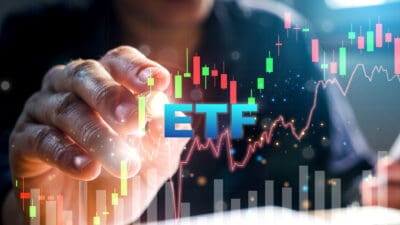The BetaShares Global Cybersecurity ETF (ASX: HACK) has been a popular choice for ASX investors looking to gain global exposure to what has undeniably been one of the strongest growth trends in the markets in recent years. The HACK exchange-traded fund (ETF) has also long been the only choice for ASX investors seeking this exposure. But not anymore.
The Betashares Cybersecurity ETF has been on the ASX for just over seven years. Over that period, it has delivered some impressive performance returns for its investors since its inception in August 2016. As of 31 August, HACK investors have enjoyed an average annual return of 16.72% since inception.
So it's no surprise to see that across those seven years that have delivered such impressive performance metrics, and with almost no competition, the HACK ETF now has around $781 million in net assets under management.
But it now seems that the BetaShares Global Cybersecurity ETF's monopolistic stranglehold on this corner of international markets has come to an end.
Yesterday, the ASX welcomed a new cybersecurity ETF to its boards. The Global X Cybersecurity ETF (ASX: BUGG) launched at $10 a unit and is trading at $9.90 at present. It seems that having a cybersecurity ETF on the ASX means finding a competing ticker code too. HACK is one of the best, but BUGG certainly gives it a run for its money.
So how does this new cybersecurity ETF compare to the Betashares veteran?
How does the HACK ETF measure up against its new BUGG competitor?
Well, the HACK portfolio tracks the Nasdaq Consumer Technology Association Cybersecurity Index. At present, the fund contains 35 underlying holdings, which are dominated by the following cybersecurity shares:
- Palo Alto Networks Inc (NASDAQ: PANW) at 6.5% of the HACK portfolio
- Infosys Ltd (NASDAQ: INFY) at 6.4%
- Cisco Systems Inc (NASDAQ: CSCO) at 6.4%
- Broadcom Inc (NASDAQ: AVGO) at 5.9%
- Fortinet Inc (NASDAQ: FTNT) at 5.2%
In contrast, the Global X Cybersecurity ETF tracks a different index in the Indxx Cybersecurity Index. Here's a look at this fund's top holdings, and their weightings in the BUGG portfolio:
- Zscaler Inc (NASDAQ: ZS) at 9.03% of the BUGG portfolio
- Crowdstrike Holdings Inc (NASDAQ: CRWD) at 7.1%
- Palo Alto Networks Inc (NASDAQ: PANW) at 6.77%
- Okta Inc (NASDAQ: OKTA) at 5.96%
- Check Point Software Technologies Ltd (NASDAQ: CHKP) at 5.58%
So you can see here that the two funds are quite different in their scope, albeit with overlapping exposures.
Both the HACK and BUGG ETFs also differ slightly when it comes to geographic weighting. HACK is by far the more US-centric fund. 80.2% of this ETF's holdings were US-listed companies as of 31 August, with another 5.8% coming from India, 3.3% from Israel, 3% from France, and 29% from Canada.
Conversely, BUGG only has a 68.8% weighting to the United States, with 14.2% coming from Israeli companies, 5.4% from Japan, 5.1% from the United Kingdom, and 4.5% from Canada.
Show me the money
The other significant point of difference we can discuss is the fees that investors are expected to pay. The BetaShares Global Cybersecurity ETF charges a management fee of 0.67% per annum. BUGG is clearly looking to undercut this with its own fee of 0.47% per annum, which is a good 30% lower than that of HACK.
Those figures represent a cost of $67 and $47 respectively per annum for every $10,000 invested.
Of course, the Global X Cybersecurity ETF was only listed yesterday, so it makes comparing the performances of these two ETFs a little redundant at this point. But it will be interesting to see which of these two ASX cybersecurity ETFs comes out on top after a few years of competing against each other.









